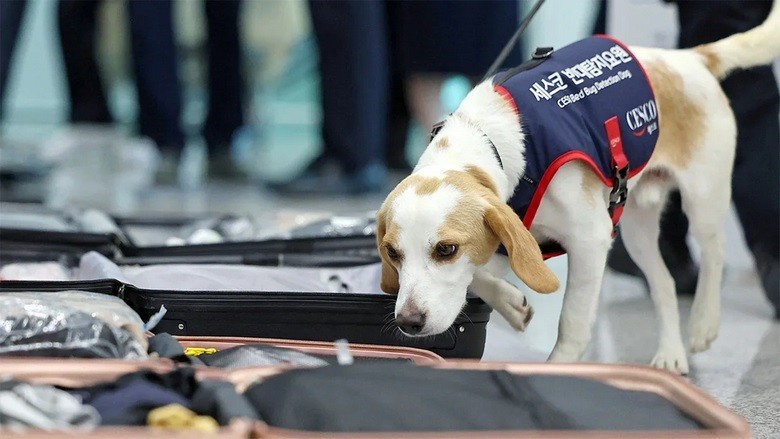
views
The Use of Sniffer Dogs to Detect Bedbugs at South Korea's Incheon Airport
South Korea has recently implemented innovative measures to combat the potential spread of bedbugs as travelers return from the Paris Olympics. In an effort to mitigate the risk of these blood-sucking insects entering the country, South Korea has enlisted the help of a specially trained sniffer dog at its main international airport, Incheon.

According to reports from Reuters, the star of this operation is a two-year-old beagle named Checo. Trained by a pest control company called Cesco, Checo is the first and only dog in South Korea trained to detect the distinct scent of pheromones secreted by bedbugs. Cesco claims that Checo is capable of inspecting a standard hotel room in less than two minutes, showcasing the efficiency and effectiveness of this canine assistant in identifying potential bedbug infestations.
The collaboration between Cesco, airlines, Incheon Airport, and government agencies such as the Ministry of Safety and Transport and the Disease Control and Prevention Agency highlights the comprehensive approach taken by South Korea to safeguard its borders against the intrusion of bedbugs. By screening arrivals from Paris and implementing stringent preventive measures, the government aims to prevent the introduction of bedbugs into the country following the conclusion of the Olympics.
In a press release addressing the issue, the government emphasized the importance of proactive measures to prevent a potential bedbug infestation post-Olympics. The deployment of Checo at Incheon International Airport signifies a significant step towards achieving this goal, as the sniffer dog is poised to play a crucial role in detecting any presence of bedbugs among returning travelers and their luggage.
With Checo commencing work just as athletes and officials began returning from Paris, the timing of this initiative is key in ensuring swift detection and response to any potential bedbug threats. Operating until September 8, Checo's presence adds an extra layer of protection to Incheon Airport's existing disinfection protocols, particularly for flights arriving directly from Paris which now undergo more frequent disinfection procedures.
As the Incheon Quarantine Service gears up to address any potential bedbug incidents on board aircraft or within the airport premises, the collective efforts of all stakeholders involved underscore the seriousness with which South Korea is approaching this issue. By prioritizing early detection and proactive prevention strategies, South Korea sets a commendable example for other countries facing similar challenges in safeguarding public health and well-being.
In conclusion, the utilization of a sniffer dog like Checo to detect bedbugs at Incheon Airport represents an innovative and effective approach to protecting the country from potential infestations. The coordinated efforts of various organizations and agencies demonstrate a commitment to ensuring the safety and health of all individuals entering South Korea. As international newspapers report on this unique initiative, the spotlight shines on the importance of proactive measures in combating the spread of pests and maintaining high standards of hygiene and cleanliness within travel and tourism sectors.




















Comments
0 comment